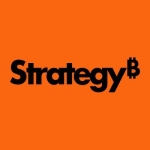What is our primary use case?
I have used the product with some clients.
We use it to build a dashboard for the executives of the businesses. With it, we can create better insights for them and create visualizations for the businesses. The primary use of the dashboard which we developed is to track the progress on the sales and marketing side. Basically, it's used to give companies better insights.
What is most valuable?
From a developer's perspective, the way the functionality's being handled is great.
The solution is stable.
It's an easy product to set up.
The solution offers helpful community support.
What needs improvement?
They need to work more on interactivity in order to help users interact with the tool itself.
It needs to be more user-friendly. People should be able to access the tool in a much easier way when they are trying to develop something. Finding items is harder on Looker than it is on, for example, Tableau.
Looker needs to provide a better user interface.
Training should be freely available on platforms like YouTube. That way, people can go and learn the tool. Tableau and Power BI already provide a lot of free training and users can go and learn anything they need on their own. Looker is at a disadvantage when they don't have proper training easily available.
I have not seen much penetration in the market in terms of marketing. They don't seem to be doing any marketing with the tool.
They seem to be moving towards machine learning. However, they need to create a separate space for themselves in the market.
For how long have I used the solution?
We haven't used the solution for that long.
Buyer's Guide
Looker
January 2026
Learn what your peers think about Looker. Get advice and tips from experienced pros sharing their opinions. Updated: January 2026.
881,757 professionals have used our research since 2012.
What do I think about the stability of the solution?
The solution is quite stable. This is a late entry in the market compared to what Tableau or Power BI did in the market. It will take some time to really create that impression in people's minds about that tool. However, we haven't had issues with reliability.
What do I think about the scalability of the solution?
The solution's scalability is good. Unlike Tableau, which becomes slow over time (when the data size increases), Looker has been decent.
Here there's a team of four or five people only who use the solution. It's not a big team. You don't need a lot of people to build the visualization. I'm not sure if there are plans to increase usage. That would be a decision of management.
How are customer service and support?
I've not dealt directly with technical support. However, their community support is very helpful.
Which solution did I use previously and why did I switch?
I'm aware of Power BI and Tableau.
If I compare Tableau, Power BI, and Looker and Looker has a little bit of a disadvantage over Tableau. Tableau, in terms of how things have been created, is better from a user perspective. It is a little costly, however, at the same time, the kind of interactivity, the kind of interaction it gives to the business, is useful. Power BI is a little cheaper compared to Tableau in terms of subscription. Power BI also is great for companies that have a lot of databases like Microsoft SQL Server or Microsoft Azure.
How was the initial setup?
The initial setup was decent and not that complex. It was easy.
There's a deployment team here. I develop tool visualization and they take care of the deployment part. I don't directly deal with the setup process. I know that, with Tableau, it's just a few clicks and you are up and running. The same goes for Power BI.
What about the implementation team?
We have an in-house team that deals with the implementation.
What was our ROI?
I have noted an ROI, however, a client would be more able to speak to which ways in particular.
What's my experience with pricing, setup cost, and licensing?
I don't know their subscription fees. I am not really aware of where they stand in terms of pricing. However, it's my understanding that Tableau is more expensive.
The pricing for Power BI and Tableau varies quite a bit. You pay maybe $1,000 for a user subscription for Tableau and $100 for Power BI.
What other advice do I have?
I'm a consultant and I work with various tools. I basically work with whatever tool the client needs me to.
I'd advise potential new users to train and get good training. Go with the basic steps first. They need to learn the tool decently. A lot of people know Tableau and Power BI, however, when it comes to Looker, they need to do proper training. Looker should also provide some very quick training for the new users, and they should provide some training to the business users as well, with videos to show how to navigate the tool, et cetera.
I'd rate the solution seven out of ten. If the GUI was better, I would rate it higher.
Which deployment model are you using for this solution?
Public Cloud
If public cloud, private cloud, or hybrid cloud, which cloud provider do you use?
Microsoft Azure
Disclosure: My company does not have a business relationship with this vendor other than being a customer.










